Business
We are cooperating with Nigeria Customs over $40million aircraft duty waiver allegations, says Arik Air in Receivership

granted to Arik Air was before the receivership period, under the leadership of Sir Johnson Arumemi-Ikhide, were not properly documented and handed over to the receivership team as required by law.The management of Arik Air under Receivership stated that it was Sir Johnson who pledged the affected aircraft and engines to various local and international lenders, possibly in violation of the terms of the waivers.”
Cape Town Convention. The public is invited to note that it it amounts to slight of hand for a borrower to issue an IDERA, enjoy a credit facility on the basis of the security conferred by the IDERA, then behind the lender, enter into another arrangement that will prevent the peaceful enjoyment of the IDERA.
EDC, Arik Air in Receivership said it agreed to extend loans to an entity called JEM Leasing Limited towards meeting Arik’s equipment needs.
“EDC confirmed in a letter dated April 21, 2023, that they sold the two CRJ900 Aircraft. The decision to sell was made by EDC, not the receivership team of Arik; Regarding the CRJ1000 Aircraft, EDC negotiated with a buyer who chose to dismantle it into its constituent parts . It should be noted that JEM Leasing Limited, the owner of the CRJ Aircraft, confirmed in a letter dated May 5, 2023 that they sold the plane. The CRJ planes sold were not owned by Arik. The “Receiver/Manager could not have sold or passed title on assets that are not covered by his receivership; In summary, the sale of the CRJ Aircraft was a lender-led transaction. Arik only exercised its rights to exit an unprofitable lease arrangement. Thus, the assertion that the Receiver/Manager of Arik sold the aircraft is without merit. It is patently false.”
the Arik receivership in February 2017. Over time, mainly prior to the receivership, the aircraft was cannibalized, rendering it
unserviceable. The MJI lacked engines as they had been removed by the pre-receivership management of Arik; The MJI did not possess a valid Certificate of Airworthiness, and its cabin had been stripped in preparation for the incomplete C-Check; The aircraft was abandoned in a remote dump site at the Maltese Airport, due to infrastructure development by the airport authorities.
We urge the public to disregard the sensationalized headline click-bait of $40 million duty waiver. The duties are paid in Naira. The use of inflated and unsubstantiated sums in newspaper headlines, particularly Sahara Reporters (SR) has been part of the strategy to tarnish the reputation of Arik Air Limited (in Receivership). The public is also advised to be wary of those who, if they cannot regain control of Arik would rather kill it.
We challenge SR to practice responsible journalism and have the courage to hear from the other side before publication.
Arik Air Limited (in Receivership) remains indebted to AMCON to the tune of over N240 billion. Together with Rockson and Ojemai Farms, all companies owned by Johnson Arumemi-Ikhide, they are indebted to the tune of over N400 billion to AMCON. Rather than engage in fruitless campaigns of calumny, they should approach AMCON to pay their loans.”

Business
Zenith Bank emerges Nigeria’s Number one bank for sixteenth consecutive year
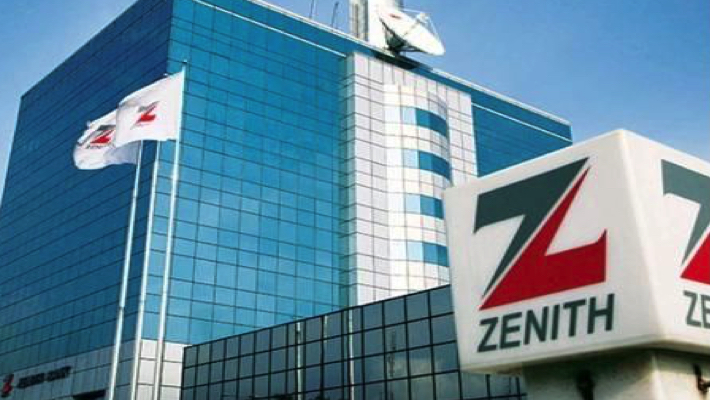
Zenith Bank Plc has retained its position as the Number One Bank in Nigeria by Tier-1 Capital for the sixteenth consecutive year, in the 2025 Top 1000 World Banks’ Rankings, published by The Banker, Financial Times Group, United Kingdom.
This ranking places Zenith Bank Plc as the 581st Bank globally, with a Tier-1 Capital of $2 billion.
The global rankings, published in the July 2025 edition of The Banker, was based on the 2024 year-end Tier-1 capital of banks. This is the primary basis for most international organizations’ assessments of banks.
Commenting on this achievement, the Group Managing Director/CEO of Zenith Bank Plc, Dame (Dr.) Adaora Umeoji, OON, said, “We are thrilled to have retained our position yet again as the Number One Bank in Nigeria by Tier-1 capital for the 16th consecutive year. This achievement is a reflection of the bank’s robust financial performance, prudent risk management and steadfast dedication to delivering exceptional value to our customers and stakeholders”.
She thanked the Founder and Chairman, Jim Ovia, CFR, for his visionary and transformative leadership which has played a pivotal role in cultivating a resilient and thriving institution. She also expressed her deepest appreciation to the bank’s esteemed customers for their continued loyalty to the Zenith brand, the Board for the sound corporate governance, and the staff for their relentless & tireless efforts in ensuring the bank’s success.
Tier-1 Capital describes capital adequacy, the core measure of a bank’s financial strength from a regulator’s perspective. According to the ranking, Tier-1 Capital, as defined by the Bank for International Settlements (BIS) guidelines, includes loss-absorbing capital, i.e., common stock, disclosed reserves, retained earnings, and minority interests in the equity of subsidiaries that are less than wholly owned. A strong Tier-1 capital ratio boosts investor and depositor confidence, indicating the Bank is well-capitalised and financially stable.
According to the audited financial results for the 2024 financial year presented to the Nigerian Exchange (NGX), the Bank recorded a double-digit growth of 86% in gross earnings, increasing from N2.13 trillion in 2023 to N3.97 trillion in 2024. This growth was driven by a 138% increase in interest income, supported by investment in high-yield government securities, and growth in the Bank’s loan book.
Zenith Bank’s profit before tax (PBT) rose by 67%, reaching N1.3 trillion in 2024 from N796 billion in 2023. This performance saw the bank record an unprecedented total dividend payout of N195.67 billion at N5.00 per ordinary share in the 2024 financial year.
Zenith Bank’s track record of excellent performance has continued to earn the brand numerous awards including being recognised as the Bank of the Year (Nigeria) in The Banker’s Bank of the Year Awards for 2020, 2022 and 2024; Best Bank in Nigeria from 2020 to 2022, 2024 and 2025, in the Global Finance World’s Best Banks Awards; Best Bank for Digital Solutions in Nigeria in the Euromoney Awards 2023; and being listed in the World Finance Top 100 Global Companies in 2023.
Further recognitions include Best Commercial Bank, Nigeria for four consecutive years from 2021 to 2024 in the World Finance Banking Awards and Most Sustainable Bank, Nigeria in the International Banker 2023 and 2024 Banking Awards. Additionally, Zenith Bank was acknowledged as the Best Corporate Governance Bank, Nigeria, in the World Finance Corporate Governance Awards from 2022 to 2024 and ‘Best in Corporate Governance’ Financial Services’ Africa for four consecutive years from 2020 to 2023 by the Ethical Boardroom.
The Bank’s commitment to excellence saw it being named the Most Valuable Banking Brand in Nigeria in the Banker Magazine Top 500 Banking Brands for 2020 and 2021, Bank of the Year 2023 and 2024 at the BusinessDay Banks and Other Financial Institutions (BAFI) Awards, and Retail Bank of the Year for three consecutive years from 2020 to 2022 and in 2024 at the BAFI Awards. The Bank also received the accolades of Best Commercial Bank, Nigeria and Best Innovation in Retail Banking, Nigeria, in the International Banker 2022 Banking Awards.
Zenith Bank was also named Most Responsible Organisation in Africa, Best Company in Transparency and Reporting and Best Company in Gender Equality and Women Empowerment at the SERAS CSR Awards Africa 2024; Bank of the Year 2024 by ThisDay Newspaper; Bank of the Year 2024 by New Telegraph Newspaper; and Best in MSME Trade Finance, 2023 by Nairametrics. The Bank’s Hybrid Offer was also adjudged ‘Rights Issue/ Public Offer of the Year’ at the Nairametrics Capital Market Choice Awards 2025.
Business
Jubilation as Naira set to break below N1,500/$ resistance

The Nigerian currency is less than N30/$ away from breaking the key resistance level of N1500/$ in Nigeria’s official market.
The Naira is trading at N1528/$ on Friday, slightly lower than Thursday’s closing price.
Nigeria’s naira’s fundamentals significantly improved after Nigerian banks resumed foreign currency transactions using naira debit cards.
Guaranty Trust Bank (GTBank), United Bank for Africa (UBA), Wema Bank, and Stanbic IBTC reinstated the ability for their customers to spend using naira cards internationally.
Customers were notified by GTBank that they could now pay for their favorite items anywhere in the world with their naira card, which now has a $1000 limit for international transactions over three months.
“This limit covers cash withdrawals from ATMs abroad up to $500 and online and point-of-sale transactions up to $1000. We would like to remind everyone that the $1000 cap on all other transactions outside of Nigeria applies to cash withdrawals, online payments, point-of-sale payments, and services related to withdrawals paid for in dollars”, the orange coloured bank stated.
UBA also stated, “As part of our unwavering dedication to enhancing your banking experience, we are delighted to inform you that all UBA Premium Naira Cards, including Gold, Platinum, and World variant cards, are now fully operational for international transactions.”
The naira’s firmness followed support from the IMF for Nigeria’s disinflation strategy. They describe the CBN’s tight monetary policy as “appropriate and necessary” in losing inflation expectations and securing the macroeconomic framework in the Fund’s latest Article IV Consultation Report for 2025.
“Directors agreed that the Central Bank of Nigeria is appropriately maintaining a tight monetary policy stance, which should continue until disinflation becomes entrenched,” the IMF said in the report released Wednesday.
The IMF also acknowledged the CBN’s policy shift to stop monetization of deficit control, which had contributed to inflation in previous years. They also praised efforts to improve governance and transparency in the monetary system.
The Nigerian Apex Bank held the MPR steady at 27.5 per cent and kept the Cash Reserve Ratio at 50 per cent for commercial banks and 16 per cent for merchant banks during the last MPC meeting in May.
Dollar index settled lower in global markets
The greenback eased lower on Friday after gaining in the previous session.
The Dollar Index’s value decreased by two-tenths of a percentage point to 96.605, tracking the dollar’s exchange rate against a basket of six other currencies. It showed slight declines over the week, even after a 0.4 per cent increase on Thursday.
Better-than-expected US jobs data delayed the Federal Reserve’s possible rate-cutting timeline, which caused the US currency to gain strength on Thursday. With high tariffs set into effect on July 9, these gains, however, were short-lived as focus turned to ongoing trade negotiations between the US and many of its trading partners.
Only three agreements have been announced thus far, and US President Donald Trump escalated tensions by declaring on Thursday that numerous nations will receive letters on Friday outlining the tariff rates they will be subject to.
This is a departure from Trump’s prior pledge to negotiate individual agreements with trading partners.
Jerome Powell, the chairman of the US Federal Reserve (Fed), and Trump have been at odds for several weeks. The European Central Bank (ECB) has lowered its key interest rates multiple times, but the central banker is unwilling to do the same.
His worry? Because inflation is likely to get out of control once more.
However, Jerome Powell suggested that he might cut these rates in the upcoming months at the ECB’s Sintra (Portugal) forum.
“When we saw the size of the tariffs and that almost all inflation forecasts for the United States have increased significantly, we suspended our activities,” the Fed chairman said. Additionally, he promised that his only concern is leaving his successor “a healthy economy.”.
However, it should be noted that a reduction in key rates could also be due to a devaluation of the US dollar. In Europe, EUR/USD increased by 0.1 per cent to 1.1774, with the single currency expected to gain 0.5 per cent per week.
German industrial orders dropped 1.4 per cent from May on a seasonally and calendar-adjusted basis, which was significantly more than anticipated, according to data released earlier Friday.
The European Central Bank lowered interest rates for the eighth time in a year in June, but decision-makers said they would probably take a break at their subsequent meeting.
Banking
Wema Bank lifts MSMEs with N3m grants at fair
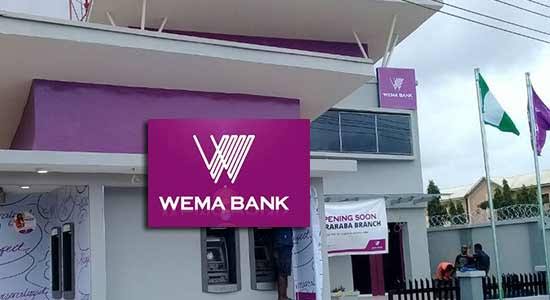
Wema Bank has given N3 million in business grants to three top businesses at the Lagos Leather Fair 2025, a strong reaffirmation of its commitment to growth of Micro, Small and Medium Enterprises (MSMEs).
The beneficiaries — EwaOluwa Morenikeji of House of Ewa Limited, Joy Fache James of Paciencia, and Fatima Yusuf of House of Zibima — each got N1 million following their performances at a pitch competition sponsored by Wema Bank at the fair.
The initiative, which coincided with World MSME Day, is part of the bank’s broader strategy to empower indigenous businesses, boost economic inclusion, and foster sustainable business practice in Nigeria’s MSME sector.
EwaOluwa Morenikeji, founder and chief executive of House of Ewa, a bag-making brand, said the grant would be channelled on advanced machinery and improving production output.
“I’m grateful for this opportunity to put my business out there and get the support I need to scale. This will help my business grow, and I thank Wema Bank for thinking of small businesses like mine and supporting us,” she said.
Wema Bank’s Managing Director and chief executive officer, Moruf Oseni, noted the bank’s long commitment to empowering businesses and driving inclusive economic growth.
“MSMEs present a two-fold opportunity for us at Wema Bank. Empowering MSMEs not only stimulates the Nigerian economy, but it also extends the reach of our impact to the grassroots.
“For 80 years, we have been committed to empowering lives and businesses. We will continue to meet the needs of MSMEs and create tailored opportunities for them to thrive,” Oseni said.
The fair, considered the premier leather industry event in West Africa, drew local and international stakeholders across the value chain — including designers, manufacturers, and suppliers.
Business
Businessman magnate, Aminu Dantata, dies at 94
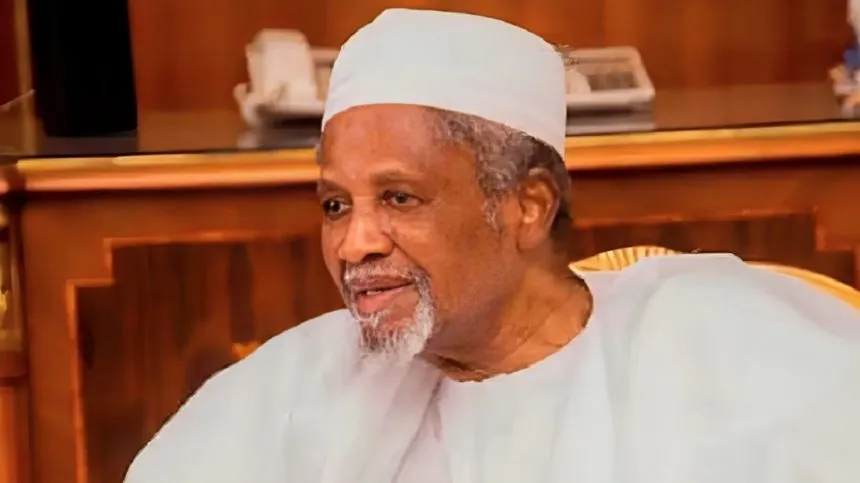
Alhaji Aminu Alhassan Dantata, a renowned Nigerian businessman and philanthropist, has passed away at the age of 94.
The news of billionaire businessman’s demise was disclosed via a social media post on Saturday by the Deputy National Treasurer of the Nigerian Association of Chambers of Commerce, Industry, Mines and Agriculture (NACCIMA), Uba Tanko Mijinyawa.
According to him, details of the Muslim funeral prayer (Jana’iza) for Dantata will be announced in due course.
“Inna Lillahi wa’inna ilaihi Raji’un. Allah ya yi wa babanmu Dattijo, Alhaji Aminu Alhassan Dantata, rasuwa. Muna addu’a Allah ya jikan sa, ya gafarta masa. Za a sanar da lokacin jana’izarsa,” Tanko wrote in Hausa language.
Tanko’s message about the late philanthropist, who is also an uncle to Africa’s richest man, Aliko Dangote, was translated as “Indeed, we belong to Allah and to Him we shall return. May Allah have mercy on our father and elder, Alhaji Aminu Alhassan Dantata. We pray for his forgiveness. The time of his funeral will be announced.”
Also confirming the news, his Principal Private Secretary, Mustapha Abdullahi Junaid, disclosed in a statement Saturday morning that the Janazah details will be shared later.
Junaid wrote, “Innalillahi wa inna ilaihi rajiun. Innalillahi wa inna ilaihi rajiun. It is with heavy heart that I announce the passing of our beloved father, Alhaji Aminu Alhassan Dantata. May Allah grant him Jannatul Firdaus and forgive his shortcomings. The Janazah details will be shared later insha Allah.”
Alhaji Aminu Dantata, who was the founder of Express Petroleum & Gas Company Ltd., is also credited with having played a key role in the establishment of Nigeria’s first non-interest (Islamic) bank, Jaiz Bank.
Business
South Africa firm, MultiChoice desperately reduces DSTV, GOTV subscription after losing 1.4 million customers
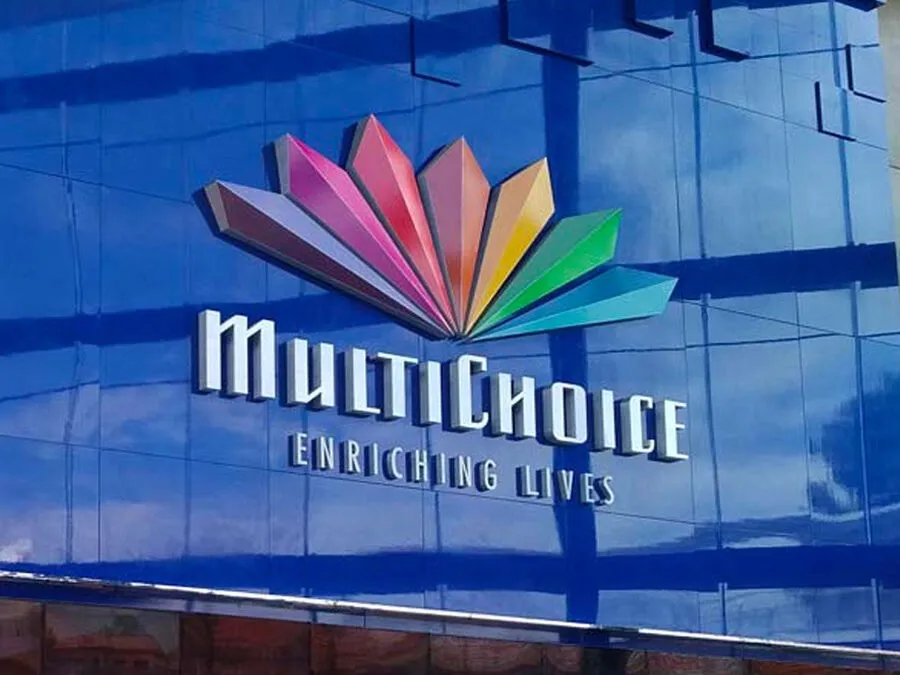
Nigerians have made significant progress against one of their primary competitors in Africa by implementing widespread boycotts of products from South African companies.
This movement has resulted in a substantial reduction of 1.4 million customers for these firms, representing a considerable setback in recent months.
MultiChoice Nigeria has slashed the price of its DStv decoder by 50 per cent, dropping it from ₦20,000 to ₦10,000.
The company announced that the move aimed to attract more customers and curb declining subscriptions.
This was coming after it lost 1.4 million subscribers between March 2023 and March 2025.
According to the firm’s Chief Executive Officer, John Ugbe, in a statement released on Tuesday, the offer was a way of rewarding customer loyalty and delivering enhanced value to subscribers.
“We want to ensure our customers feel appreciated and have access to the best entertainment every day. The ‘We Got You’ campaign is about making premium content more accessible and showing that DStv offers something for everyone, not just football fans.
“By repositioning itself as a platform for daily value, DStv aims to encourage content discovery across a wider array of genres, including movies, drama, kids’ programming, and news.
“This means more channels, more shows, and more reasons to tune in every day,” the statement added.
The company also announced a promotional offer granting subscribers a free upgrade to the next DStv package tier when they pay for their current plan in full between June 16 and July 31, 2025.
Multichoice maintained the price slash, and the free upgrade initiative is a response “to the noticeable economic impact on the everyday lives of Nigerians.”
Recall that MultiChoice Nigeria increased its DStv and GOtv bouquet prices three times within 12 months — first in April 2023, followed by another hike in November 2023, and a third announced in April 2024, which took effect on May 1.
Business
Fresh details as Naira falls to N2,200
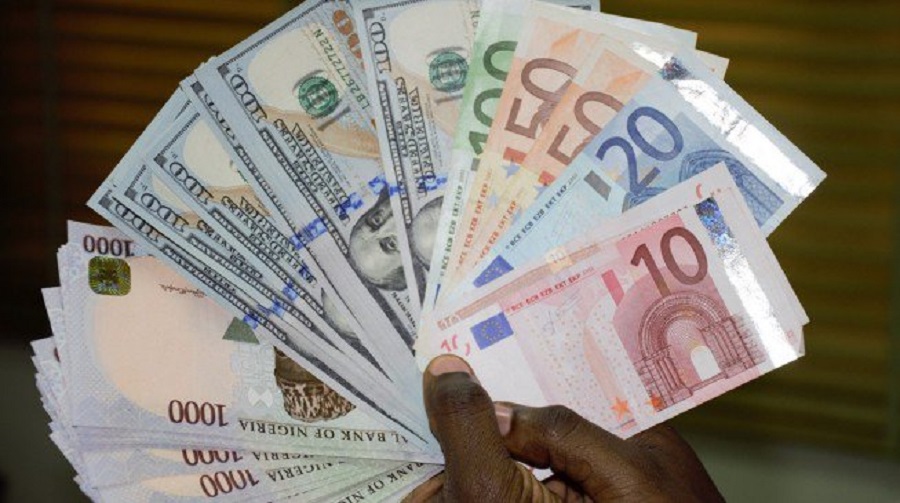
Recent price movements indicate that the Nigerian currency has remained in a consolidation phase in the unofficial market, according to several reports.
The dollar’s rapid decline has also boosted the pound. Investor concerns over the potential damage from the White House’s unpredictable policymaking have caused the dollar to decline sharply.
Recent monetary fundamentals suggest that the CBN’s ongoing reforms, along with the participation of foreign investors, will be crucial in determining whether the Nigerian naira remains stable in 2025.
The country’s currency is fluctuating between N2,150 and N2,250/£/£ this month due to increased buying pressure on the British pound in Nigeria’s commercial capital.
However, the naira experienced a positive shift with the establishment of global depositary notes denominated in naira by BNY Mellon and Standard Bank, backed by Nigerian sovereign debt. It aims to provide foreign investors with easier access to Nigeria’s high-yielding debt market.
The new depositary notes will be settled through Euroclear and Clearstream, two significant international clearing systems, enabling a broader range of institutional investors worldwide to participate. This development is seen as a major step forward.
British Pounds fundamentals still solid amid weak UK retail sales data
The pound sterling remained strong against its major peers for the week. When compared to the US dollar, the sterling closed at 1.345 amid a sharp decline in May retail sales figures from the United Kingdom (UK).
However, the psychological level of 1.35 against the US dollar is a roadblock for the sterling, indicating that the short-term trend is uncertain
The poor retail sales report will exert more pressure on the Bank of England to cut rates in the summer, despite the central bank holding rates steady on Thursday.
UK retail sales dropped significantly, falling 2.7% month-over-month in May.
This came after an upwardly revised 1.3 per cent increase in April and was markedly worse than the -0.5% market estimate. This steep decline, the most significant since December 2023, was partly due to a precipitous drop in food store sales.
UBS forecasts that the euro is expected to gain strength against the British pound over time, possibly pushing the currency pair toward the 0.86 mark, as consumers feel the impact of inflation and express concerns about the state of the economy. The bank stated it was confident that trade and geopolitical risks affecting both currencies would ultimately be resolved.
The primary obstacle to a rate cut is persistently high inflation, although markets anticipate one or two rate cuts in 2025.
However, three members of the Monetary Policy Committee (MPC) voted in favor of a 25-bps rate cut, citing significant labor market loosening, muted consumer demand, and pay deals near sustainable levels. The BoE reaffirmed in the policy statement that any further monetary policy restraint should be relaxed gradually and cautiously.
UK consumer prices increased in May as expected, but the year-over-year rate slowed from the previous month. According to economic data, the May annual inflation rate was 3 per cent, consistent with forecasts and only slightly lower than April’s 3 per cent rate.
Notably, had there been no error in the Vehicle Excise Duty series, the April figure would have also been 3 per cent.
The core consumer price index increased by 3.5 per cent in May compared to 3.8 per cent in April. Inflation remains significantly above the Bank of England’s target of 2 per cent.
UK Finance Minister Rachel Reeves cautiously acknowledged government efforts to stabilize public finances but cautioned that there is “more to do.” Markets interpreted that as a reference to ongoing economic challenges.

 Sports2 weeks ago
Sports2 weeks agoOfili: ‘Nigeria doesn’t deserve you’ – Fans react as athlete switches allegiance to Turkey

 News2 weeks ago
News2 weeks agoUS Back Out: Angry Trump withdraws support for Israel, issues fresh warning, “Do not drop those bombs”

 Sports2 weeks ago
Sports2 weeks ago‘Don’t sign him, he doesn’t follow instructions’ — Club warned against signing Super Eagles star

 Spotlights2 weeks ago
Spotlights2 weeks agoNo More War: US plots Donald Trump impeachment over unauthorized Iran bombing

 Spotlights2 weeks ago
Spotlights2 weeks agoAtiku sidelined again as ADA picks Presidential Flagbearer

 Politics2 weeks ago
Politics2 weeks agoFresh crisis hits coalition as El-Rufai, Obi may pull out over Atiku’s silence game

 Politics2 weeks ago
Politics2 weeks ago2027: Shettima fights back over plot to drop him as Vice President; crisis hits APC














